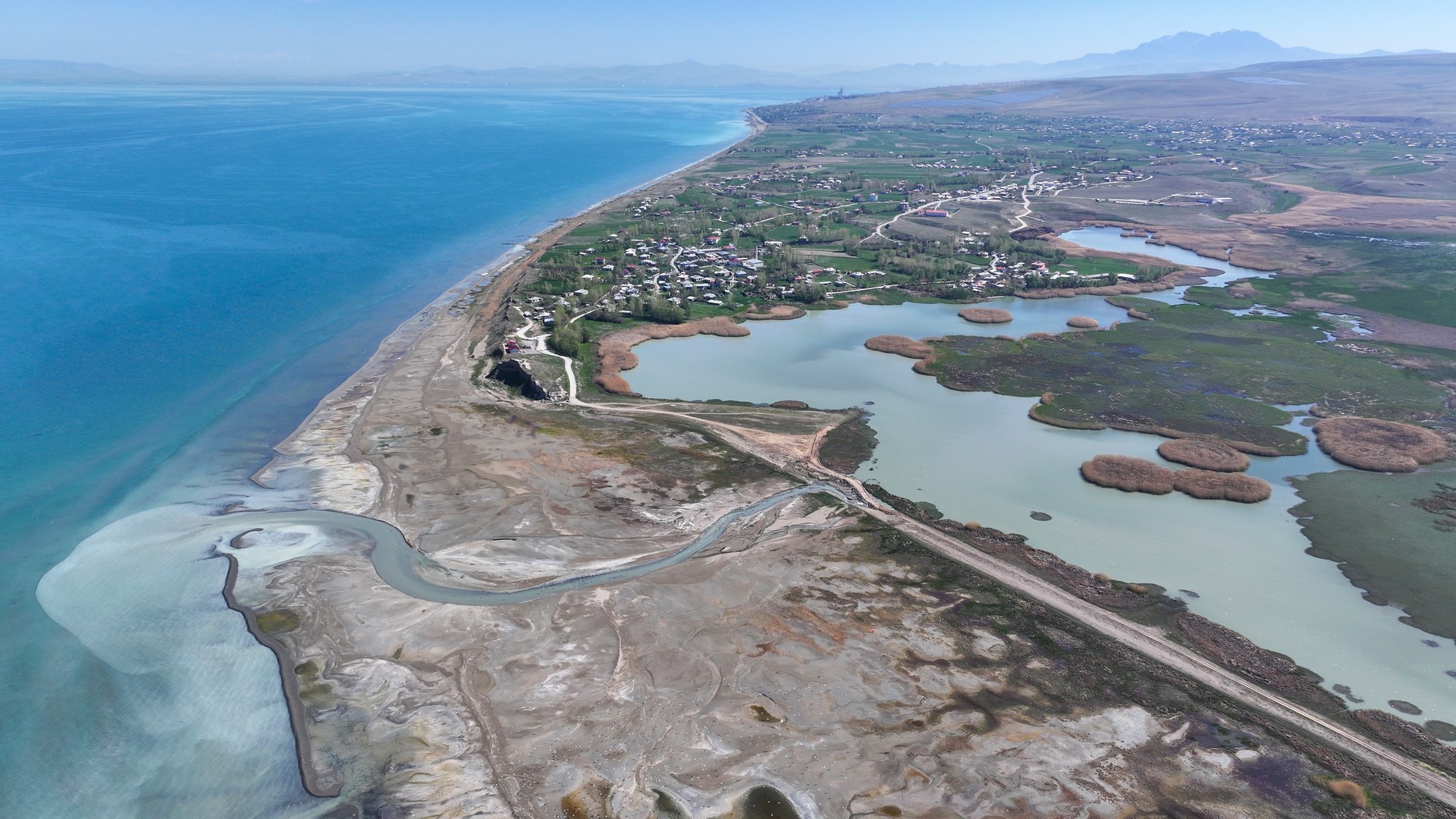
The Dilkaya Reedbed, a vital bird sanctuary in the Edremit district of Van, Türkiye, had faced severe ecological threats after the destruction of a natural water barrier. The degradation of this barrier caused fresh water from the Donemec River to flow directly into Lake Van, cutting off essential water supply to the reedbed and putting it at risk of drying out.
To make matters worse, recent wildfires ravaged the area, destroying the nesting and breeding grounds of numerous bird and reptile species. This dual assault—both manmade and natural—left one of the region's most important ecosystems in critical condition.

Recognizing the ecological importance of Dilkaya Reedbed, a coalition of institutions launched an ambitious restoration project. The initiative was spearheaded by the Van Metropolitan Municipality in coordination with the 17th Regional Directorate of State Hydraulic Works (DSI), the 14th Regional Directorate of Nature Conservation and National Parks, and the Provincial Directorate of Environment, Urbanization, and Climate Change.
Environmental activists from the Lake Van Activists Association and local nature lovers also contributed to raising awareness and supporting the project on the ground.
Thanks to the coordinated efforts, the damaged barrier was repaired, preventing the complete drainage of fresh water into Lake Van. With the water levels restored to sustainable levels, vegetation in the scorched reedbed has started to regenerate, and biodiversity is slowly returning.

Erdogan Ozel, the founding president of the Lake Van Activists Association, emphasized the significance of reedbed habitats in the region.
“These marshes and ponds in the Lake Van basin serve as essential refuges for many native and migratory birds as well as fish,” said Ozel. “The natural barrier between Dilkaya Reedbed and Lake Van had been eroded over time because of human interference and natural events. Without sufficient fresh water, the reedbed began to dry up, endangering wildlife.”
Ozel noted that after authorities intervened, the natural set was repaired, and excess water is now safely diverted to Lake Van through pipes.
“Our hopes have sprouted again,” he said. “The reedbed has regained its vitality as a habitat for birds and fish. We thank all institutions involved, especially the Governor's Office.”

Highlighting the potential of Dilkaya as an ecotourism hub, Ozel added, “This area can become a tourism hotspot.
It holds great promise for nature walks, photo safaris, and water sports. Migratory birds offer incredible visual opportunities. By educating the local community, we aim to raise awareness. Everyone must protect this natural wonder.”
Ozel also recalled the fire that broke out on February 20, which caused massive destruction.
“The fire damaged thousands of bird nests and forced many species to relocate. Restoring the barrier now serves an additional purpose—it helps protect the area from future fires. With sufficient water, the reedbed is greening again. We’re witnessing its return as a vibrant habitat for birds.”